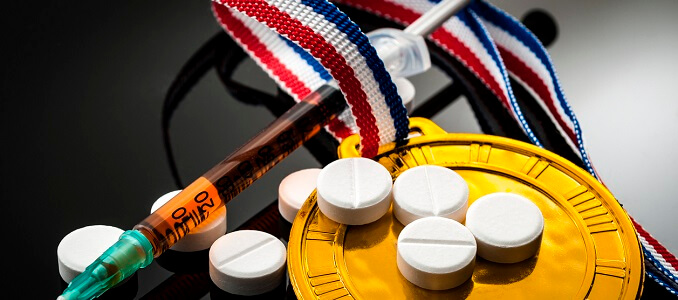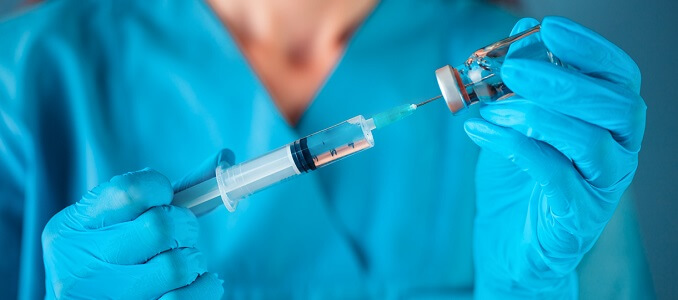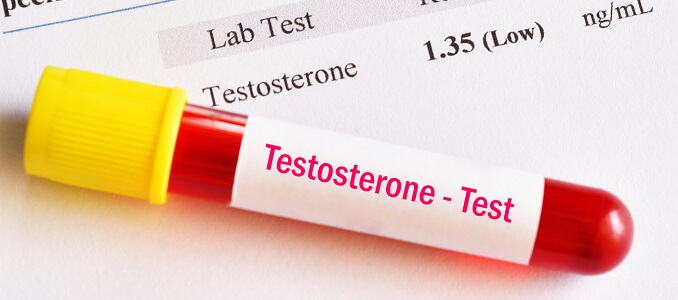Is Testosterone a Steroid?
Testosterone and testosterone therapy often get confused with “anabolic steroids.”
The confusion between the two happens for a couple of reasons. The first reason for the confusion is that testosterone does have “anabolic properties.” But, in medical terms, “anabolic” simply means any chemical compound that stimulates muscle tissue growth. Therefore, testosterone is technically an “anabolic hormone.”
Prescription testosterone injections also mistakenly get lumped together with steroid use because the “anabolic steroids” used and abused by bodybuilders and pro athletes often do contain testosterone. But the doses used in testosterone therapy are legally prescribed to return the testosterone levels in your blood to more normal levels. The testosterone in the illegal “steroids” used by some athletes is found in much higher doses. It is also often combined, or “stacked,” with other substances that boost the overall muscle-building or anabolic effect. That is why these “performance-enhancing drugs” are called “anabolic steroids.”
What Are Anabolic Steroids?
Anabolic steroids are a synthetic version of the hormone testosterone, its precursors, or other related compounds. Steroids get something of a bad reputation because they are often abused by bodybuilders, weightlifters, and other pro athletes.
Anabolic steroids often get confused with testosterone or testosterone injections because they act like testosterone on your muscles. In fact, some steroids are or contain testosterone. Others are what we call “testosterone precursors,” and still others are compounds that are not at all testosterone but have a similar effect on the body as testosterone.
Most people are familiar with anabolic steroids because of their illicit use as a performance-enhancing drug in the sports world. However, some anabolic steroids are prescribed for legitimate medical purposes.
Is Testosterone a Steroid or a Hormone?
By definition, testosterone belongs to a class of male hormones called androgens, which are sometimes called steroids or anabolic steroids. Technically speaking, testosterone is both a “steroid” and a “hormone.” That definition again, is the source for much of the confusion between legitimate steroid shots such as DEPO testosterone, which are used for various medical purposes, and “steroid abuse.”
Testosterone injections are often confused with the illegal use of anabolic steroids.
Why Is Testosterone Often Confused With Steroids?
It is quite unfortunate that testosterone is often confused with steroids. The negative press about steroid abuse can stop people who can be helped by legitimate testosterone therapy from obtaining its many life-changing benefits.
However, the confusion is understandable. The formulations used for testosterone therapy and anabolic steroids can often contain similar or even identical chemical compounds. But their uses, doses, risks, and safety concerns are extremely different.
While some of the ingredients may be similar, the difference between testosterone therapy and steroids could not be more evident. Testosterone therapy is a legitimately prescribed medical treatment for men or women who have been diagnosed with a testosterone deficiency. The kinds of steroids that testosterone gets incorrectly confused with are used illegally and at dangerously high doses in pursuit of greater muscle mass and enhanced athletic performance.
Testosterone replacement therapy is designed to optimize your testosterone levels safely and effectively.
Is Testosterone Therapy the Same Thing as Taking Steroids?
Testosterone therapy is absolutely nothing like the illegal use or abuse of anabolic steroids. One is an unlawful and dangerous practice with significant health hazards. The other is a doctor-supervised, legitimately prescribed treatment for a medical problem.
Testosterone therapy is prescribed to treat men diagnosed with low testosterone. Testosterone is the most critical male hormone. It is responsible for all the traits that allow a boy to mature into a man. Even once a male is fully grown, testosterone continues to play a vital role in building muscle, maintaining sexual health, and mental acuity. Despite its continued need, a man’s testosterone level drops as he ages. Testosterone production peaks around the age of 20; after that it starts a steady decline.
By the time a man is over the age of 40, he can expect his testosterone levels to drop by as much as 2% per year. This age-related testosterone decline results in low testosterone. The signs and symptoms of low testosterone include:
- Fatigue and weakness
- Low libido and other sexual performance issues
- Decreased semen production/infertility
- Weight gain, particularly belly fat
- Loss of muscle mass, inability to build muscle, even while exercising
- Anxiety, depression, and mood swings
- Difficulty concentrating, memory loss, and other cognitive difficulties
Testosterone replacement therapy is designed to safely and effectively optimize your testosterone levels to treat these conditions.
By contrast, steroid abuse, or “doping,” is the illegal use of anabolic steroids to try to increase muscle mass or athletic performance. While these drugs may contain some testosterone, they often also include other chemicals that are added to further enhance physical performance or the ability to build muscle. These other ingredients can be dangerous, even deadly.
Another difference is that many people who take anabolic steroids illegally order them online from overseas pharmacies, which means there is no way of truly knowing their purity or strength. Legitimate testosterone injections cannot be bought online and require a doctor’s prescription.
But the most important distinction between testosterone therapy and taking steroids is that testosterone replacement is a medically supervised treatment that helps men achieve normal levels of testosterone to improve their quality of life. Steroids are most often used illegally and at dangerously high doses, with no medical supervision whatsoever, or worse yet, dolled out by unscrupulous “doctors” who care little about your health or safety.
It is absolutely nothing like the illegal use or abuse of anabolic steroids.
Now that you know a bit more about the very real differences between anabolic steroids and testosterone, why not contact us today? We would be happy to answer any questions or concerns you may have about testosterone replacement therapy.





